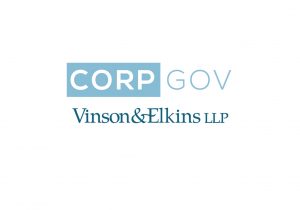 By Charlotte Kiaie and Rachel Goun, Esq.
By Charlotte Kiaie and Rachel Goun, Esq.
As the 2021 proxy season looms, activist investors and public companies must recognize that environmental, social and governance factors will have an outsized impact on contested elections.
Throughout 2020, the world’s largest investors – ranging from BlackRock to Fidelity to Vanguard –increasingly emphasized ESG when assessing their vast public company holdings. The world’s biggest money managers pledged billions to sustainability and diversity efforts while increasingly voting against proposals put forth by companies that are ESG laggards. It is now clear that failing to embrace these values represents a legitimate business risk for corporate boards and management teams.
Investors’ growing focus on ESG has undoubtedly been sharpened by the combination of increased climate change awareness, civil unrest over racial injustice and the COVID-19 pandemic. These variables will continue impacting how large shareholders cast votes in board fights in the upcoming proxy season. In the same spirit, independent proxy advisory firms are also likely to increase their emphasis on non-financial metrics.
While corporate performance and shareholder returns will remain the primary issues debated in contested situations, savvy activists and proactive companies should be prepared to address at least three key ESG considerations in 2021 fights.
- Prioritizing Board Diversity. Nasdaq recently issued board diversity requirements for companies listed on the exchange, joining states like California in requiring racial or sexual minority representation in the boardroom. These milestone proposals signal that major shareholders will continue to expect companies to shoot for above-average diversity at the leadership levels.
Accordingly, activists nominating directors must now broaden their horizons when assembling slates. It is no longer acceptable to simply nominate a homogenous group of male investors with similar backgrounds from a fund manager’s network. Influential institutional investors and proxy advisory firms are unlikely to back an activist if a slate of director candidates lacks diversity in terms of gender, race and experiences. With a McKinsey study finding that diverse companies are 33% more likely to produce greater returns than their less-diverse industry peers, there is a clear rationale for activists to nominate qualified director candidates that will help close a company’s diversity gap.
To avoid becoming an easy target, companies must be proactive in refreshing boards with the right directors. Retaining “zombie directors” – incumbents who failed to win majority support from shareholders – can alienate investors and severely damage a company’s ESG appeal. Companies that fail to expeditiously communicate governance goals and truly execute on director refreshment plans will be vulnerable to sophisticated activist campaigns in 2021.
- Demonstrating Social Consciousness. 2020 was the year for corporate social action.Successful public companies acted authentically to combat racial injustice and the harrowing COVID-19 crisis. Effective boards drove companies to improve inclusion practices, support racial equality and prioritize employee safety and wellness. Responsible directors also showed awareness by ensuring companies did not maintain or implement misaligned executive incentive plans while employees and shareholders suffered.
But some companies have not reacted as quickly, leading them to become more vulnerable. The rise of socially-conscious activists such as Inclusive Capital spells trouble for boards that are allowing companies to stagnate during this moment of profound change.
- Showing Environmental and Sustainability Awareness.The Green New Deal proposals, investor-driven initiatives like the Climate Action 100+ and the incoming Biden administration’s Clean Energy Revolution plan are all catalysts that have brought environmental issues to the forefront of Corporate America.
Companies can no longer convey vague commitments or share non-specific goals for green initiatives, also known as “greenwashing.” Instead, those in the energy, industrial and transportation sectors will be pushed by shareholders to tangibly reduce greenhouse gas emissions and implement responsible environmental policies. In fact, following pressure from institutional investors, oil major Total SA recently pledged to achieve net-zero emissions and reduce the carbon intensity of its products over the next 30 years.
With notable Fortune 50 companies joining a formal commitment to be net-zero carbon by 2040, small and mid-cap companies should be quick to follow suit. If they do not, they soon be feeling the heat.
Looking ahead, it is critical for activists to assess how a target stacks up on ESG before deciding to launch a campaign. Identifying and exposing a company’s ESG failures – alongside poor financial performance and strategic issues – will be a tailwind in a fight. Having diverse director candidates to address those failures could be what puts a dissident over the top in a tight fight.
The takeaway for corporate leadership teams should be even more clear: impactful ESG programs are no longer optional. A vulnerable company must proactively address the aforementioned considerations, or it will be a sitting duck for a hungry and forward-looking activist investor come spring.
Charlotte Kiaie and Rachel Goun, Esq. are Vice Presidents at Profile, a nationally-recognized communications firm that advises companies and investors navigating complex governance matters and special situations.







